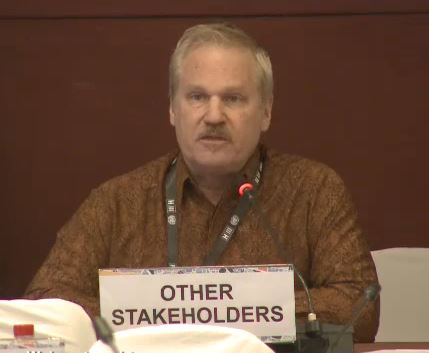
inception, is inconsistent with historic agreements, today’s global priorities and
the “world we need.” Particular interests have narrowed the Habitat Agenda to
urban priorities,subordinated rural areas and ignored issues of forced
migration, presuming that urbanization is “inevitable” and beyond human will or
policy direction.
That vision neglects the crises and root causes of
displacement that create and deepen suffering and impoverishment. If we truly want
to “end poverty in all its forms,” consistent with the 2030 Sustainable
Development Agenda, we would need a vision consistent with increased rural
investment and development and that—as in the Habitat Agenda—“treats
villages and cities as points on a human settlements continuum within a common
ecosystem.”
Positively, the new draft reiterates the
human right to adequate housing and corresponding housing policies. That aligns
with international obligations of every state represented here and forms a basis
for further progress toward achieving a “human rights habitat” for all,
including the Right to the City and good-governance norms that do not stop at urban
boundaries.
However, the dismissal of lessons learned from implementing Habitat II
commitments joins neglect of the inequity and cyclical crises created by globalized
markets. Such omission ignores the repeated Habitat II commitments to ensure implementation
within a just macroeconomic order. Habitat International Coalition (HIC) calls
for states to regulate financial and property markets to remedy their
impoverishing consequences.
We are shocked to find nothing in this Agenda about the transnational regulation
of mortgage securitization and the real estate sector, corruption or land
grabbing. Operationalization of rental housing and market alternatives toward
inclusive urbanization is possible only by remedying the global financial order.
The 2030 Sustainable Development Agenda leaves obvious gaps for the Habitat III Agenda to fill,
including obstacles to sustainable development posed by “foreign and military
occupation.” The 2030 Agenda notes the need for effective remedial measures,
but offers none.
draft’s section on Follow-up lacks the intent and specificity needed for
implementation, monitoring and evaluation. It maintains the 20-year lack of Habitat
Agenda implementation and amnesia about committed actions of states and UN
organizations. Among the broken promises of Habitat II was the repeated
commitment “to prevent and remedy forced evictions” across all habitats.
A
human rights approach must guide global human-settlement policy and
corresponding commitments consistent with state obligations. HIC calls for a
holistic New Habitat Agenda, not an “urban agenda” that leaves half of humanity
behind. A New Habitat Agenda must incorporate environmental sustainability gender
equality, non-discrimination, accountability, reparations for harm done, inter-generational
equity with a strong focus on the rights of children and older persons, as well
as persons with disabilities, sexual minorities,indigenous peoples, and the progressive
realization of all human rights for all. Effective implementation, monitoring
and evaluation should align with the 2030 Agenda, the Paris Agreement and other
international obligations and commitments of states. There is too much at
stake, and now is our chance to get it right.
Surabaya,
Indonesia, 26 July 2016
Contact:
Housing and Land Rights Network
Email:
contact@hlrn.org.in and hlrn@hlrn.org
Websites:
www.hlrn.org
Habitat
International Coalition, General Secretariat
Email:
gs@hic-net.org
Website:
http://www.hic-gs.org/
HIC Portal: http://hic-net.org/
Photo: Joseph Schechla, HIC-HLRN Coordinator, addressing Habitat III PrepCom3.
* Click here
to watch the video.